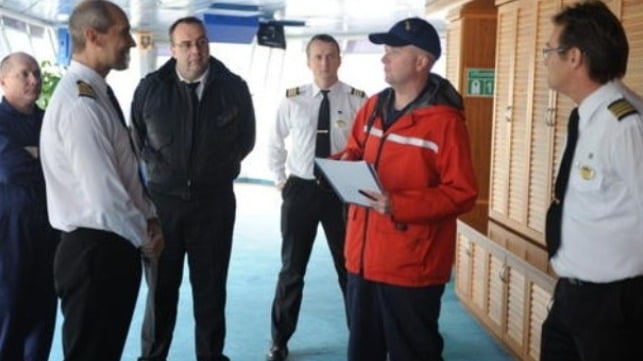UK MCA Plans Enhanced Inspections Before Cruise Ships Resume Service

UK authorities are expected to announce a series of requirements for the cruise industry in the coming weeks before the anticipated return to operations projected to start in mid-May after a further relaxation of COVID-19 related restrictions. The UK Maritime & Coastguard Agency, which oversees the inspections of all ships operating from the UK, was the first to announce the steps that it will require for all passenger ships seeking to resume service after the pause in operations due to the pandemic.
In a “Notice to all Surveyors, Ship Operators, Port Authorities, Masters, Officers and Crew,” the MCA sets out the expectations for UK expanded inspections of cruise vessels operating out of UK ports with UK resident passengers on board. The agency notes that it historically conducted expanded inspections on cruise vessels operating out of UK ports to provide a level of assurance to the traveling public.
Noting that it is more than a year since cruise ships were in operation, the MCA’s policy will be that all cruise vessels operating from UK ports with UK passengers on board will be subject to an “Expanded Inspection” by surveyors of the MCA before the commencement of operations regardless of their previous inspection history. The scope of the inspection conducted on UK registered vessels, such as those of Cunard, P&O, Princess Cruises, and Saga, will be decided on a case-by-case basis dependent on the level of oversight maintained by the MCA during the pandemic.
The internationally-flagged cruise ships that are planning to sail from the UK this summer, including Celebrity Cruises, Disney Cruise Line, Fred. Olsen, MSC, Royal Caribbean International, and Viking, however, will all be required to undergo an expanded inspection. The MCA says that this will be regardless of the vessel or organization’s history.
The MCA will be following the standards for expanded inspections as detailed by the Paris MOU of Port State Control, an organization that consists of 27 participating maritime administrations from Europe, Iceland, and Canada. The Paris MOU’s inspection routine is comprehensive covering 14 categories, ranging from structural conditions including watertight condition and machinery to life-saving, emergency, fire safety, navigation, and pollution controls. It also includes living and working conditions as well as the vessel’s documentation.
Further, while the MCA says it does not hold the relevant competencies to assess the effectiveness of the specific protection measures put in place on board to manage COVID-19, it is requiring each ship to have a COVID-19 management plan. These plans must be verified by a competent, independent third party.

that matters most
Get the latest maritime news delivered to your inbox daily.
The MCA will verify that the vessel holds a COVID-19 management plan and that the plan has been subject to external verification. A vessel not holding a COVID-19 management plan, or unable to demonstrate that it had been externally verified, could face a prohibition to carry passengers until it can demonstrate that the relevant risks have been assessed and mitigated.
It is also anticipated that the UK health authorities will issue detailed guidance for the operation of the ships to mitigate the COVID-19 risk to passengers and crew. The cruise lines have noted in their announcements that their policies are still under review with UK authorities.
